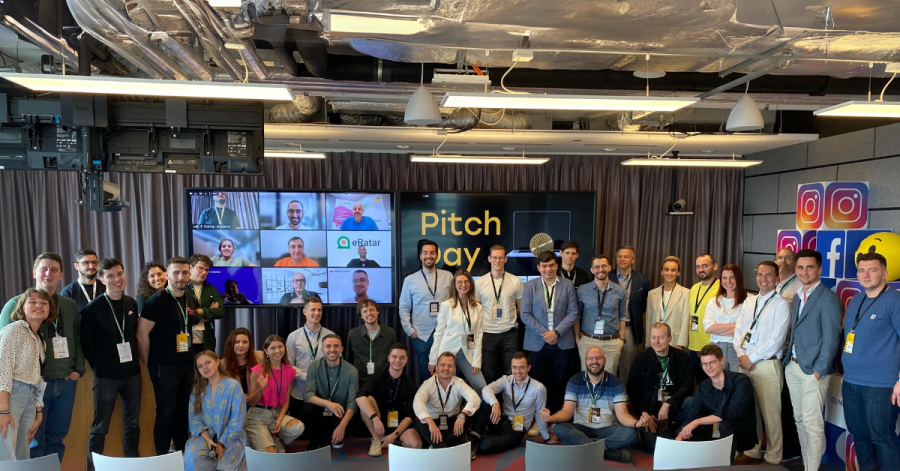Europe’s startup industry has more than doubled in value over the past five years. In 2023, CEE startups are worth a combined €213B, up from €89B in 2019, according to a recent report. By 2022, this figure will reach €190 billion. There is currently a concentration of fast-growing startups here. At the same time, more than 200 startup accelerators and incubators operate in Northern, Central, and Eastern Europe, making it easier for startups to grow.
It is becoming increasingly common for large tech companies to give back to the community by creating programs for their employees or startups in adjacent industries, as well as to make corporate funds available to support startup ecosystems in the region.
Why startups should participate in accelerator programs
Accelerator and incubator are often one of the first stops for tech startups. They offer product development, sales, and marketing help to entrepreneurs. Lifelong learning is the norm in a dynamic world, and this is especially true for startups. Accelerators and incubators aren’t the same thing. Idea-stage businesses benefit from incubators. Here’s your chance to test an idea, get feedback, and turn it into a working prototype. Other entrepreneurs who already have a MVP and need investments and customers go to accelerators.
If these resonate with you, consider an accelerator:
- If you’re new to entrepreneurship and could use some expert guidance to move forward.
- If you’re in the process of testing your business idea and could benefit from mentorship and feedback to find your niche in the market.
- If you’re looking to expand your professional network, especially important for B2B businesses aiming to boost sales or hire key team members.
- If you’re seeking investment opportunities and need introductions to potential investors, making the fundraising process smoother and more effective.
How to choose an accelerator
If your plan is to scale and enter new markets, join a program that fits these criteria:
- Internationality: ensure the intended program has diverse expertise from different countries. This will help when it comes to building a global network, implementing best practices and entering new markets faster, with the help of connections.
- Participation terms: Ensure clarity on the expectations for participation. Some accelerators may necessitate startups to exclusively engage with their program for a set duration, establish a legal entity within their jurisdiction, demand significant equity, or mandate the use of designated service providers.
- Expertise: Take note of the mentors’ roster. Verify whether the mentors or domain experts have firsthand experience in building a business themselves, or if there are founders among them who are just one step ahead, armed with fresh insights.
- Investors’ involvement: Inquire about how deeply partner VCs engage. It’s not merely about attending Demo Day. The most valuable connections and trust are forged through active one-on-one collaboration with VC representatives, potentially leading to deals.
- Stage and niche: Make sure your business type aligns with the program’s focus. Consider joining accelerators specialized in specific verticals. Also, ensure the program matches your product’s current stage. For instance, if you’re still validating your idea, a growth stage accelerator may not be the best fit, as your priorities as a founder might differ.
- Community and peer-to-peer learning: Check out the criteria set by the accelerator or startup community for the expertise of its members. Try to get into programs where there is a high entry threshold, a lengthy selection process, but a quality network.
How to succeed in a startup accelerator
Define the focus. You usually have only 3–4 months to complete the program. You won’t be able to cover everything, so analyzing what you need to work on first is important. Formulate and prioritize your requests, then develop a plan with specific KPIs.
Do the job. Making sure you dedicate time not only to study, but also to work on your startup. There are a lot of cases where founders spend too much time on training and never actually do the thing. Get insights and implement them in improving the product.
Engage the team. There are accelerators who train not just the founder but the whole team. This is a nice bonus because the first employees of the startup can grow to the C-level. Accordingly, they need to improve not only their domain expertise, but also their approach to building a team and a business.
“Take and share”. Share contacts, provide feedback, and respond to community requests. Make yourself memorable and willing to help. If your product can be relevant to startup founders, offer free services or discounts in exchange for honest feedback. Friendly deals promote common growth.
Gently nudge the organizers. Sometimes, the accelerator’s resources are underestimated. If you need help connecting with potential partners, investors, or recruiting additional mentors, don’t hesitate to ask. Remember, the accelerator team is committed to your success throughout the program and beyond, so feel free to share both your triumphs and challenges with them.
An accelerator program can be a powerful tool for business development and personal growth. For this, founders should formulate their training requests as clearly as possible and choose programs carefully to ensure it matches their needs. They should also pay attention to the presence of an active community around the program, so they are not alone on this entrepreneurial path. Meanwhile, participants must be ready for criticism and open to working on the shortcomings of their business or product. With all of this in mind, startups will be able to get the maximum benefit from the various opportunities out there for startups.








